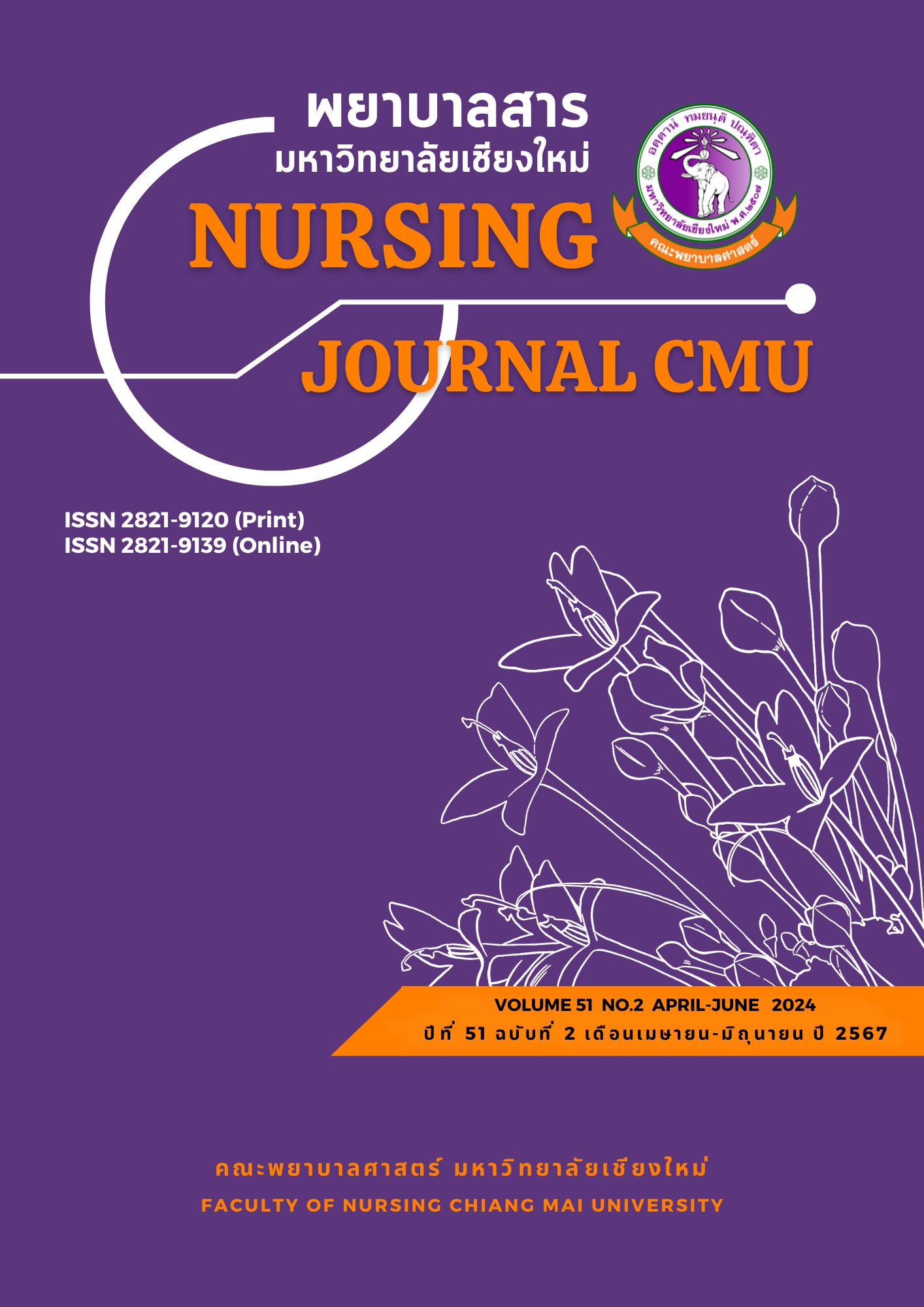Modifying Attitudes for Reducing Alcohol-drinking Behaviors Among Thai People
Keywords:
Attitudes on alcohol drinking, Public media campaign, Attitude readjustment, Alcohol drinking behaviorAbstract
Currently, Thai society is facing an escalating problem stemming from increasing alcohol consumption which is considered a major societal problem with a continuous rise in the severity of its consequences. Alcohol consumption has become more prevalent among women, children, and youths, as Thai society sees drinking alcohol as normal. Thais have a positive attitude towards alcohol consumption and view drinking alcohol as entertainment for social gatherings and festivals. In addition, the transition of Thai society to the 4.0 era, in which it is easier for sellers to reach buyers online, is another factor that makes it possible to buy liquor anywhere and anytime. Therefore, modifying attitudes to reduce alcohol drinking behavior among regular drinkers and cultivating new attitudes toward not drinking alcohol among young people of the new generation are good ways to prevent the emergence of new drinkers so that alcohol problems can be managed in society.
This article presents modifying attitudes for reducing alcohol-drinking behaviors among Thai people as follows: attitude adjustment by managing the teaching curriculum to focus on content related to the harms and effects of drinking alcohol; a campaign to adjust attitudes to reduce alcohol consumption in public media; stricter government policy controlling the sale and purchase of liquor, controlling alcohol advertising as a social activity, and fostering beliefs that prioritize good health. Therefore, the problem of alcohol drinking can be efficiently and effectively dealt with, building Thai society into a society that is peaceful, orderly, safe and sustainably maintains the good culture of Thailand.
References
Akhajan, S., Vatanasin, D., & Hengudomsub, P. (2017). Factors associated with intention to alcohol abstinence among persons with relapsed alcohol dependence. Journal of Boromarajonani College of Nursing, Bangkok, 33(1), 17-28. (in Thai)
Center for Alcohol Studies. (2022). Patterns and trends in alcohol drinking behavior of the Thai population. https://cas.or.th/wp-content/uploads/2022/05/FF-chapter-1-For-Print.pdf (in Thai)
Chaichuy, P., & Satararuji, K. (2016). Thailand’s public issue communication through a communication innovation for campaign, website “Change.org”. Veridian E-Journal, Silpakorn University, 9(2), 1526-1536. (in Thai)
Erikson, E. H. (1959). Identity and the life cycle. International Universities Press.
Guerra-Doce, E. (2014). The origins of inebriation: Archaeological evidence of the consumption of fermented beverages and drugs in Prehistoric Eurasia. Journal of Archaeological Method and Theory, 22, 751-782. https://doi.org/10.1007/s10816-014-9205-z
Guerra-Doce, E. (2015). Psychoactive substances in prehistoric times: Examining the archaeological evidence, time and mind. The Journal of Archaeology, Consciousness and Culture, 8(1), 91-112. https://doi.org/10.1080/1751696X.2014.993244
Injumpa, C., & Wongpimoln, B. (2022). Predictive factors of intention to alcohol avoidance among university students in Roi Et Province. Thai Red Cross Nursing Journal, 15(1), 64-76. (in Thai)
Kampang, R. (2022). Synthesis of study results on drinking and driving in Thailand. Center of Alcohol Studies. https://cas.or.th (in Thai)
Kelman, H. C. (1967). Attitude Change. http://www.novabizz.com//NovaAce/Self/Spiritual/Attitude_11.php–20k-
Liqour Distillery Organization. (2017). Alcohol poisoning. https://www.liquor.or.th/aic/detail/%E0%B8%9E%E0%B8%B4%E0%B8%A9%E0%B8%82%E0%B8%AD%E0%B8%87%E0%B9%81%E0%B8%AD%E0%B8%A5%E0%B8%81%E0%B8%AD%E0%B8%AE%E0%B8%AD%E0%B8%A5%E0%B9%8C (in Thai)
Namlabut, S., & Lamyai, W. (2018). A school-based study on harm to others due to alcohol consumption among youth in Nong Khai Province. Quality of Life and Law Journal, 14(2), 94-108. https://so05.tci-thaijo.org/index.php/QLLJ/article/view/175630 (in Thai)
National Statistical Office of Thailand. (2022). Survey of smoking and alcohol drinking behaviors of the Thai population in 2021. https://www.trc.or.th/th/attachments/article/618/%E0%B8%AA%E0%B8%96%E0%B8%B4%E0%B8%95%E0%B8%B4%E0%B8%9A%E0%B8%B8%E0%B8%AB%E0%B8%A3%E0%B8%B5%E0%B9%88%202564.pdf (in Thai)
Ng, Y. J., Yang, Z. J., & Vishwanath, A. (2018). To fear or not to fear? Applying the social amplification of risk framework on two environmental health risks in Singapore. Journal of Risk Research, 21(12), 1487–1501. https://doi.org/10.1080/13669877.2017.1313762
Piaget, J. (1964). Cognitive development in children: Piaget development and learning. Journal of Research in Science Teaching, 2, 176-186. https://psychscenehub.com/wp-content/uploads/2021/03/Piaget-Cognitive-Development-in-Children.pdf
Promsit, S. (2021). Development of media innovation to prevent alcohol consuming among children using design thinking process. Center for alcohol studies. Faculty of Management Science, Rajabhat University. (in Thai)
Raksong, S., Meunthaisong, K., & Srichaikul, B. (2017). Effects of alcohol excise tax on alcohol consumption in Thailand. University of the Thai Chamber of Commerce Journal Humanities and Social Sciences, 37(2), 74–88. http://utcc2.utcc.ac.th/utccjournal/372/74_88.pdf (in Thai)
Saelim, S., Moopayak, K., & Suwonnaroop, N. (2017). Factors related to alcohol drinking behavior of adolescents. Songklanagarind Journal of Nursing, 37(3), 25-36. https://he02.tci-thaijo.org/index.php/nur-psu/article/view/100346/78117
Sareelae, N., & Chadcham, S. (2018). Memory in patients with chronic alcoholism. Journal of Nursing and Health Care, 36(2), 15–21. https://he01.tci-thaijo.org/index.php/jnat-ned/article/view/139601 (in Thai)
Sathapitanon, P. (2008). Communication of public issues and changes in Thai society. Department of Public Relations Faculty of Communication Arts, Chulalongkorn University.
Tsoy, D. (2021). Role of social media in shaping public risk perception during COVID-19. https://researchleap.com/role-of-social-media-in-shaping-public-risk-perception-during-covid-19-pandemic-a-theoretical-review/
World Health organization. (2022). Alcohol. https://www.who.int/news-room/fact-sheets/detail/alcohol
Downloads
Published
How to Cite
Issue
Section
License
Copyright (c) 2024 Nursing Journal CMU

This work is licensed under a Creative Commons Attribution-NonCommercial-NoDerivatives 4.0 International License.
บทความที่ได้รับการตีพิมพ์เป็นลิขสิทธิ์ของวารสารพยาบาลสาร
ข้อความที่ปรากฏในบทความแต่ละเรื่องในวารสารวิชาการเล่มนี้เป็นความคิดเห็นส่วนตัวของผู้เขียนแต่ละท่านไม่เกี่ยวข้องกับมหาวิทยาลัยเชียงใหม่ และคณาจารย์ท่านอื่นๆในมหาวิทยาลัยฯ แต่อย่างใด ความรับผิดชอบองค์ประกอบทั้งหมดของบทความแต่ละเรื่องเป็นของผู้เขียนแต่ละท่าน หากมีความผิดพลาดใด ๆ ผู้เขียนแต่ละท่านจะรับผิดชอบบทความของตนเองแต่ผู้เดียว






